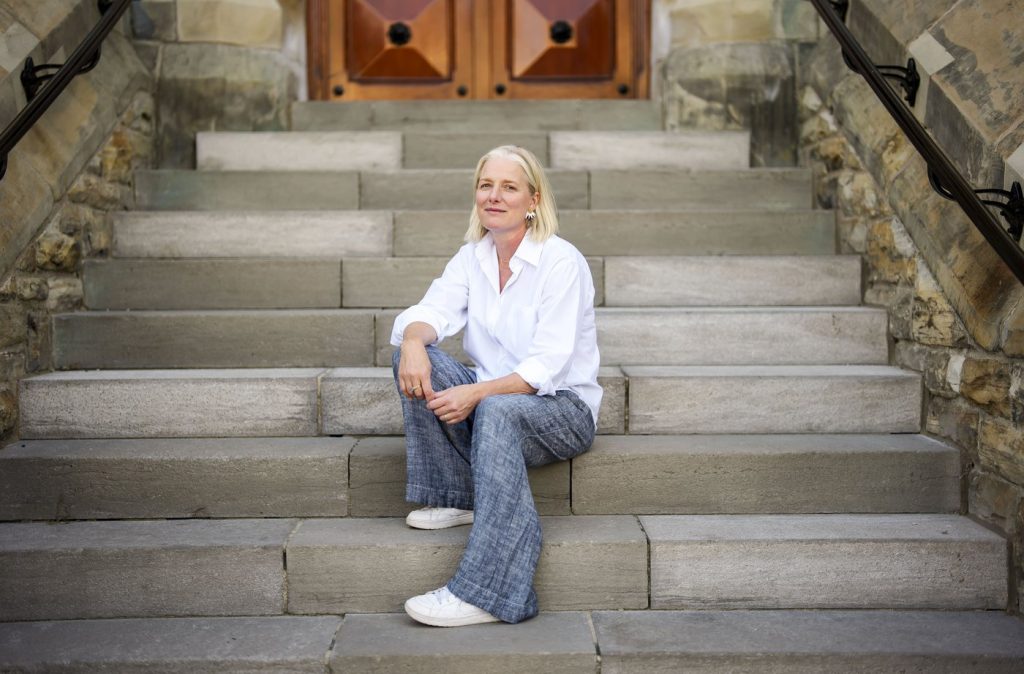OTTAWA – Catherine McKenna, the former federal environment minister, has expressed criticism of the Trudeau government's approach to communicating the consumer carbon price to Canadians, describing their efforts as "half-hearted." In her newly released autobiography, Run Like A Girl, McKenna reveals the challenges she faced in advocating for carbon pricing, a flagship government policy she oversaw upon its introduction in 2019. This policy, however, was ultimately repealed by Prime Minister Mark Carney on his first day in office in March.
McKenna, who was first elected in 2015 and immediately appointed as minister of environment, credits a pivotal meeting with George Shultz – a Republican and former U.S. Secretary of State – for the idea of making the consumer carbon price revenue-neutral by rebating funds back to Canadians. She notes that pushing this concept within her own party was difficult. “Some people, particularly in the Prime Minister’s Office, wanted to invest any new revenue in green projects,” McKenna writes. She argued that this approach would be perceived as a tax grab, inviting challenges regarding how the money would be spent.
Support from then-finance minister Bill Morneau for a revenue-neutral program did not translate to a successful discussion with Prime Minister Trudeau. McKenna recounted her difficulty in securing a meeting on this critical subject, noting that it was challenging to find time with Trudeau, despite its importance. “This was a flagship government policy, yet getting half an hour to discuss it seemed impossible,” she remarked in her book.
In a recent interview, McKenna clarified that her struggles to meet with Trudeau should not be construed as a lack of commitment to climate action. She attributed the difficulty more to Trudeau’s leadership style, stating, “I could not get a meeting for a very long time on one of the most important policies.” Ultimately, McKenna noted that it was only after Liberal MPs voiced their support in a caucus meeting that she was able to align Trudeau with the policy.
However, it was Trudeau’s later decision to exempt home heating oil from carbon pricing that McKenna identifies as a fatal blow to the policy. This exemption primarily benefited residents of Atlantic Canada, who are more reliant on heating oil, while others across Canada utilize a mix of different fuels, such as natural gas, for heating. McKenna expressed her shock at this decision, labeling it a politically motivated move aimed at garnering support in Atlantic Canada, and deeming the announcement “beyond cynical.” She argued that such a shift not only created confusion and resentment but also undermined the government’s climate goals.
Moreover, McKenna pointed to additional hurdles that hampered public support for consumer carbon pricing. She cited issues such as the reluctance of major Canadian banks to correctly label the Canada Carbon Rebate and the Canada Revenue Agency’s initial refusal to distribute payments quarterly instead of lump sums. The Policy also encountered setbacks due to an analysis from the Parliamentary Budget Officer, which misleadingly suggested that Canadians were losing out financially on the rebates, but an error in their initial assessment was later acknowledged in 2024.
McKenna criticized the government’s communication strategy with the public, indicating that the Liberals imposed restrictions on government advertising that ultimately backfired. The restrictions meant that officials hesitated to conduct public education campaigns about carbon pricing for fear of appearing political. She expressed disbelief that efforts to provide factual information regarding carbon rebates could be seen as politically motivated, while Canadians were misinformed by opponents like Conservative leader Pierre Poilievre, who labeled carbon pricing as a “job-killing tax.”
Currently, McKenna serves as the chair of the United Nations high-level expert group focused on net-zero emissions commitments from non-state entities. She is also preparing to release a report discussing the vital role of the Paris Agreement in driving government and industry action on emissions reduction, illustrating the critical nature of the upcoming decade in combating climate change. This report comes at a time when the Carney government has remained non-committal regarding Canada’s 2030 emissions reduction targets, with Carney emphasizing a focus on results rather than set goals.
When questioned about the Carney government’s stance on the Paris Agreement, McKenna expressed optimism, recalling her collaborative efforts with Carney during her tenure as minister and acknowledging his past support for important policies, including carbon pricing. She noted that while he has yet to unveil a specific climate plan, he has indicated that it is forthcoming.












